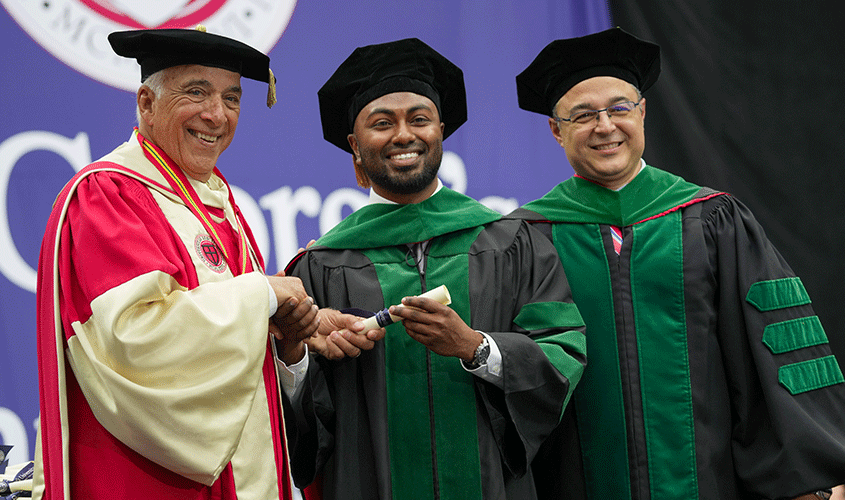Emotion ran high as St. George’s University medical students gathered for their 2023 School of Medicine commencement ceremonies on June 3 at Arthur Ashe Stadium in the USTA Billie Jean King National Tennis Center. The audience was filled with proud families and loved ones celebrating the momentous occasion. Bright-eyed with broad smiles, students crossed the podium and were awarded their Doctor of Medicine degrees.
Several keynote speakers made remarks throughout the two School of Medicine commencement ceremonies and each acknowledged the obstacles students overcame on their journey to this moment. To kick off the ceremony, SGU Chancellor Charles Modica congratulated graduates on celebrating a milestone in their lives.
“You had every reason not to succeed, and you succeeded anyway,” Chancellor Modica said.
Toward the end of his speech, Chancellor Modica’s eyes glistened out of respect for students’ achievements.
“You did it all.” He smiled. “God bless you.”
School of Medicine Dean Dr. Marios Loukas then added to Chancellor Modica’s sentiments.
“Students are dedicating themselves to the betterment of humanity,” Dean Loukas said. “Each and every one of you is an inspiration. You have overcome obstacles and demonstrated an unwavering commitment to excellence, all in favor of a greater purpose, to make a difference in the lives of others.”
The ceremony ended with these powerful words by the Dean: “You have the power to shape the future of medicine, inspire the next generation of healers, and make a lasting impact on the lives of countless individuals. You are change-makers and embodiments of the audacity of hope.”
Graduates then transitioned from medical students to medical doctors. They formally received their MD degrees, recited their oath, and proudly turned their graduation cap tassels from right to left.
Meanwhile, faculty and audience members beamed with pride at the graduates’ culmination of years of hard work, ongoing tenacity, and perseverance. The 2023 graduating class exited the auditorium as freshly minted doctors well on their way to remarkable careers.
—Madeleine Otto


